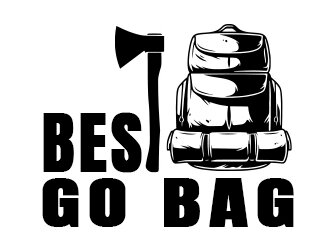What is America’s greatest natural resource?
Some might say water from the Great Lakes and the country’s mighty rivers. Others may point to massive fields of corn and wheat. Still others to our abundance of mineral resources including natural gas.
But there’s another natural resource we might not think about off the top of our heads. And that’s the more than 22 million military veterans living in the United States.
Their unique skills, experience and passion for serving others are what make them “America’s greatest natural resource,” according to Team Rubicon.
And considering how Team Rubicon has harnessed that resource and turned it into emergency response teams across the country and the world, it’s difficult to argue with their assessment.
Uniting Veterans and First Responders
Since its launch in 2010, Team Rubicon has united the skills of military veterans and first responders to respond to communities affected by disasters.
To date, the organization has responded to emergencies resulting from six earthquakes, 56 hurricanes and 96 tornadoes. Plus 132 floods, 79 wildfires and 47 other severe weather events.
Team Rubicon operates in two ways. One, they work under the direction of a governmental entity or agency and integrate fully into an existing Incident Command System structure to perform disaster functions.
Two, as a voting member of the National Voluntary Organizations Active in Disasters, they can integrate into national, state or community efforts to provide services to survivors, free of charge.
Greyshirts Roll Up Their Sleeves
Team members have conducted 785 field operations and spent more than 1.2 million hours responding to disasters. Nearly 30,000 volunteers have been trained in disaster response tactics and are ready to deploy at a moment’s notice.
Known as “Greyshirts,” these volunteers have engaged in countless activities to help people affected by disasters. Including repairing and rebuilding homes, administering emergency medicine, and facilitating hazard mitigation.
As well as being involved in incident management, site surveys, debris management, and disaster mapping and work order management.
Basically, team members do whatever it takes as quickly as possible to help people affected by disasters – wherever they occur.
Veterans Coalition for Vaccination
One of the disasters to which Team Rubicon has responded over the past 12 months has been the COVID-19 pandemic.
The organization has committed itself to helping people receive a COVID vaccine if they wish to get it. Just last month, six organizations including Team Rubicon joined forces to form the Veterans Coalition for Vaccination (www.theveteranscoalition.com).
“Team Rubicon has over 140,000 volunteers in our ranks,” said Brian Calcagono, a Team Rubicon Partnerships Associate.
“We knew that in order to make the kind of impact we wanted, at the speed we needed, and to be able to get vaccines to people in hard-to-access areas, we needed to expand the volunteer base.
“We have always worked shoulder to shoulder with other veterans organizations and knew this was the perfect opportunity to harness our collective veteran volunteer bases for one mission.”
Utilizing Their Unique Skillsets
Greyshirt volunteers are currently supporting more than 40 vaccination sites
“At Team Rubicon, we have always believed that the skills and experience of veterans are an under-utilized resource,” Brian said.
“Veterans have a unique skillset from their service that can be utilized to run successful disaster response operations quickly.”
The goal of the vaccination mission is not unlike Team Rubicon’s objectives for other deployments.
Equitable Access Is the Goal
“Our mission is to unite and mobilize a network of veterans to ensure equitable access to vaccinations for all Americans. Regardless of geographic or socioeconomic limitations,” Brian continued.
“Our goals are to stand up and support vaccination sites so that medical professionals can work to administer vaccines.
“We work with cities and counties throughout the country to assess how we can support their specific needs efficiently.
“We know we are accomplishing our goals because of the number of vaccines we’ve been able to help distribute (284,000+ in 42 cities as of March 4).”
Supporting Local Organizations
How does this work logistically?
“Once we receive a Request for Assistance from an agency, we work with them to determine what support we can provide,” Brian said.
“We can stand up an operation quickly depending on the need. Once we determine if we have the ability to provide support, we work with the requesting organization to determine the scope of work, days, hours and number of Greyshirts we will need in order to be effective.
“This includes wraparound and logistical support, patient intake and monitoring, parking operations, volunteer management, and, in some cases, medical supplementation.
“Our mission is to support the local organizations in the best way we can to build trust with the community. Often, our vaccination efforts are extended beyond their original date as a result of our success.”
Getting Back a Sense of Camaraderie
Bob Thomas is one of the Team Rubicon volunteers. The Little Rock, Arkansas resident served for 5½ years of active duty in the U.S. Army and two years in the reserves.
“I felt it was my responsibility to make money and support my family, but at some point I started missing the camaraderie I had in the military,” Bob said. “I wanted to get something like it back.
“With the pandemic raging, I called the Arkansas governor to ask what I could do as a volunteer to help. Someone from his staff called me back and suggested I join Team Rubicon.
“It turned out to be the right answer for me. It gives you that sense of camaraderie with people from different backgrounds and allows you to serve again.
‘We’re Just Now Fighting It’
“I’m a self-employed independent contractor and once my bills are paid, I apply to be deployed,” Bob added.
“With the pandemic or any challenge, you can run, hide or fight. Seems like we’ve been hiding and running from this thing, and that doesn’t sit well with a former Army Ranger. We’re just now fighting it and that feels better.”
Bob was assigned to a vaccination site in Midland, Texas by the Horseshoe Arena and Pavilion. He and his group put up an Army tent outside the building and strived to make the process as efficient as possible.
“It was all brand new and we were learning along the way,” Bob said. “There were nurses and cops and firefighters and military vets and we all had our own ideas about what would work best. There was no manual and no SOP (standard operating procedure).
“But we worked it out, got the process going and kept the line moving. We dedicated ourselves to making it run smoothly. We vets appreciated the preciseness – stop your car, roll down your window, tell us what time your appointment is – and then we’d tell them where to go and what to do.”
Winter Storm Uri Rolls In
That was all well and good for the first couple of days. But then Winter Storm Uri came calling.
“We had a 70-degree change in temperature – from 80 to 10 – and we weren’t really ready for it,” Bob said.
“The bottom dropped out. Many of us were wearing windbreakers and tennis shoes when the cold, ice and snow came in. That’s the first time I’ve been hit in the face with freezing fog blowing at 20 miles per hour.
“But the logistics manager got us hand warmers and we used vans as warming tents.”
Hesitant Vet Receives Encouragement
Despite the extreme weather, volunteers from Team Rubicon and other organizations were able to help get the vaccinations administered.
Including a vaccine for a military veteran who showed up but was hesitant to get it.
“He had been through some rough times and had family issues,” Bob said. “He was high risk and was afraid to get the vaccine.
“He came reluctantly but when he saw all the ex-military guys there, he said, ‘I’m doing it if they’re here and supporting it.’
“It was also great to see so many millennials ushering in their older relatives.”
Aiming for Advancement
Bob, who has a commercial fishing license and gives catfish away to women’s shelters and other shelters, has a high regard for Team Rubicon.
“It’s a great organization with high-quality people,” Bob said. “They know how to utilize people’s skills and plug people in where they fit best.
“There are guidelines on the distances you can travel to serve with them because they want to use their donation money as judiciously as possible.
“But my goal is to make it to an Incident Commander and be a Team Leader.”
Partnering With Team Rubicon
For the past several years, 4Patriots has been a financial partner of Team Rubicon. Your purchases of our products are what make these types of donations possible, so thank you.
Feel free to visit www.TeamRubiconUSA.org to learn more about this worthy organization.

